Loving them is easy. Now protecting them is too.
Put your pet first and be rewarded—with our Pawtection Package!


Your Pawtection Package Includes:
- Nose to tail exam
- Vaccines*
- Early detection bloodwork*
You make a lot of decisions about your pet’s wellness care. Choosing between services shouldn’t be one of them. With the Pawtection Package, you can save 30% OFF your pet’s recommended vaccines, simply by scheduling a wellness exam + blood work!
*Offer valid for new and existing clients. Not valid with any other offer. Discount applies to vaccines only and must include the purchase of a wellness exam and bloodwork.
*Your veterinarian will tailor vaccine and bloodwork recommendations based on your pet’s age, lifestyle and risk factors.
Early detection bloodwork for pets help support their health and well-being.
Here’s what we check when your pet visits:

Pawtection Package - Book now
Our veterinarians at Arvada Veterinary Hospital recommend cat and dog wellness exams annually because they contribute greatly to your pet’s health and longevity. With annual or biannual check-ups (we recommend biannual for seniors and pets with chronic conditions), our team can address emerging issues at the earliest opportunity and provide the necessary intervention to save your pet from uncomfortable symptoms or debilitating illness. Like you, we want your companion to enjoy a pain-free and disease-free life. Annual wellness exams play a key role in achieving that goal.
To ensure the best health and happiest life for your pet, we recommend
ANNUAL OR BIANNUAL WELLNESS EXAMS
depending on their unique condition and needs
Our wellness procedures are designed to prevent disease and prolong the lives of your pets. Preventative care should begin the day you welcome a new pet into your home. For puppies and kittens, we recommend beginning a vaccination series between six and eight weeks of age. While receiving appropriate vaccinations is important, the comprehensive physical examinations, intestinal parasite screenings and precautionary dewormings that are also administered during this series will help ensure your new family member is off to a happy, healthy start.
AGE-RELATED PET WELLNESS RECOMMENDATIONS
Click below to view our pet wellness recommendations for puppies and kittens, and senior pets.
What is Included in Cat and Dog Wellness Exams?
The pet wellness exam involves a comprehensive evaluation of your pet’s overall health and the monitoring of any existing condition (or conditions) that could develop into something more serious without treatment. Healthy adult dogs and cats should see their veterinarian at least once every 12 months. Senior pets, who are especially vulnerable to disease, should see their veterinarian at least every 6 months. Since dogs and cats age faster and often try to conceal pain and illness symptoms, annual or biannual exams are strongly recommended.
Additionally, if your pet takes medication such as Rimadyl, Metacam, or thyroid medication, yearly blood work is necessary to make sure they are receiving the proper dosage and not experiencing any underlying complications.
What do we check during the wellness exam?
When we examine your pet, we conduct a physical that can reveal a lot of important information about their health. Some of the things we check include:
- Eyes: Your pet’s eyes are sensitive and can be prone to issues such as cataracts, dry eye, glaucoma, and irritation, depending on their breed. Flat-faced breeds like Pugs, Bulldogs, and Persian cats tend to have bulging eyes, which puts them at risk for corneal ulcers. Glaucoma, a condition that causes severe pressure within the eye, can be especially painful and may lead to vision loss and the need to remove the eye entirely for quality-of-life purposes.
- Ears: Dogs and cats can get ear infections just like we do, and they can be painful! There is also the issue of ear mites, which often affect cats, and bacterial or yeast infections, which can cause a lot of irritation (and unpleasant odor) in dogs. Ear infections need to be treated as soon as possible, as they can become much more painful as time goes on and lead to inflammation that makes it harder to treat the ears.
- Mouth: The state of your pet’s oral health can have a major effect on their overall bodily health. We check the teeth and gums for signs of buildup and inflammation and may recommend scheduling a dental cleaning to remove buildup and prevent infection. Swollen gums, loose teeth, and bad breath are all hallmarks of dental disease.
- Heart/Lungs: Dogs and cats may be born with congenital heart issues, or they can develop heart disease and subsequent fluid buildup in their lungs as they age. Older pets are especially vulnerable to such conditions. Our goal is to detect any signs of a heart problem at the earliest opportunity so we can do any necessary tests and move forward with treatment to help your pet.
- Abdomen: We palpate your pet’s abdomen to check for any abnormalities of the organs, such as enlargement, or unusual masses that may have developed since their last visit. An enlarged organ could be an indicator of disease, infection, or a tumor, and should be addressed immediately.
- Skin: Itchy skin is one of the leading reasons for a vet visit, and it can lead to a host of other health problems if it isn’t resolved. A few telltale signs of an itchy pet (aside from scratching) are hair loss, redness of the skin, and strong odor. At Arvada Veterinary Hospital, we are equipped to manage all kinds of skin disorders including ear infections, dermatitis, mange, ringworm, fleas, and allergies.
- Bones, joints, and muscles: Is your pet walking differently or limping? It could be an acute injury, such as a ligament tear, or it might be arthritis, which makes the joint or joints stiff and painful. Issues with the bones, joints, and muscles can leave lasting effects if they are not treated early and thoroughly. Early detection and treatment can spare your pet from years of discomfort and limited mobility.
- Orthopedic and General Surgery
- Dental Care and Oral Surgery
- Full In-House Laboratory
- Complete Pharmacy
- Digital Radiology and In-house Ultrasound
- Soft Tissue Procedures including:
- Mass Removals
- Spays and Neuters
- and more!
- Dr. Don Kerrihard is a mobile surgeon available to perform advanced orthopedic procedures, including cruciate ligament repairs.
- Dr. Christina Copple is a radiologist whom we partner with. She travels to AVH to perform specialist ultrasounds and to do bimonthly radiology reviews of all our X-rays.
Routine blood, urine, and fecal testing are critical to obtain a baseline of health for your pet and detect underlying disease before it starts causing noticeable outward symptoms. This is especially important for senior dogs and cats, who are prone to various illnesses as they age.
At Arvada Veterinary Hospital, we generally recommend these tests on a routine basis:
- Blood work: Blood work can reveal hidden illnesses by showing us blood cell counts and alerting us to any changes in baseline values. This includes the presence of infection, diabetes, organ disorders, anemia, and bone marrow problems. Another routine test every pet should undergo is the heartworm test. This test can help us verify if your pet is negative for heartworms, which can be fatal in advanced cases, and potentially check for other diseases, such as Lyme.
- Fecal exam: The fecal exam helps our team check your pet for intestinal parasites, like roundworms, hookworms, and tapeworms, which can deprive your pet of important nutrients and cause diarrhea. If we do find worms in your pet, we are more than capable of treating them here at our hospital.
- Urinalysis: A small sample of your pet’s urine can tell us a lot about their health and help us detect signs of infection, kidney and/or bladder issues, crystals, and more.
Dogs and cats will instinctively hide their pain and illness as much as possible, which makes early detection via routine testing all the more important. In some cases, early detection can be lifesaving, and dramatically improve the quality of your companion’s life.


